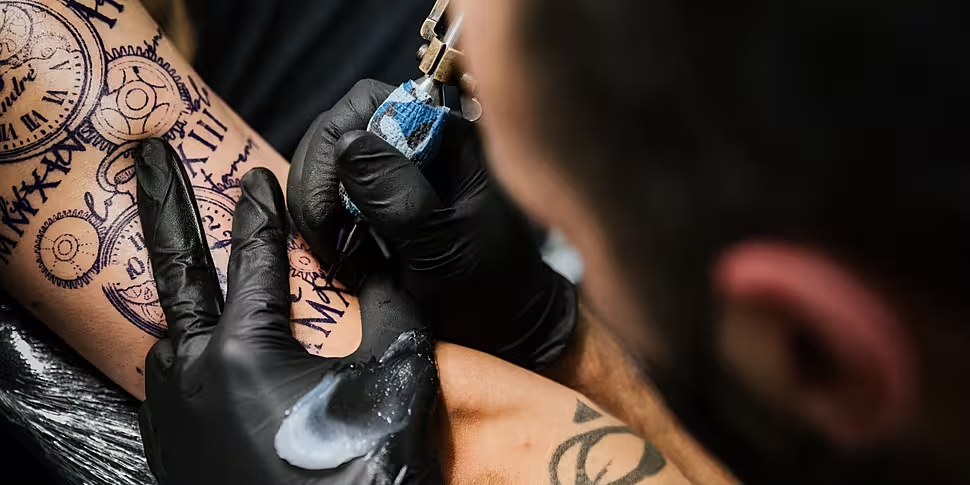Tattoo artists are facing the prospect of running out of ink due to new EU regulations that came into force this week.
The European Chemicals Agency (ECHA) has introduced new regulations limiting the use of certain ingredients that are used in many tattoo inks.
ECHA has said some of the ingredients are linked to cancer, reproductive difficulties, allergies and skin irritations.
The regulations effectively ban around 4,000 substances used in tattoo inks while also introducing strict new labelling requirements for inks sold in the EU.
On The Hard Shoulder this evening, Dolores Murray, owner of Wildcat Ink tattoo studios in Dublin, said 90% of the ink used in Europe is made in the USA – with US companies slow to react to the new rules.
As a result, she said, there are virtually no EU-compliant inks available on the market.
“The manufacturers basically ignored it,” she said. “I suppose they thought it was so ridiculous that it wouldn’t come into force but, low and behold, here we are and it is now in force.
“They have started scrambling round in the last few months to try and get REACH (Registration, Evaluation, Authorisation and Restriction of Chemicals) compliant inks on the market – but, as of now, there is pretty much no REACH-compliant inks on the market in Europe.
“Every tattoo artist in the EEA is looking for these REACH-compliant inks as of yesterday and you can imagine the difficulty in getting them.”
Ms Murray said manufacturers have relabelled tattoo ink as standard artists’ ink in a bid to get it into Europe – but even that is now running out fast.
She said the REACH regulations require manufacturers to prove their ingredients are not hazardous, rather than requiring ECHA to prove that they are.
As a result, manufacturers are faced with the prospect of having to shell out hundreds of thousands of Euros to prove their ingredients are safe.
“There is absolutely no evidence to say the substances they are banning are carcinogenic or irritants or anything else,” she said.
“There is no evidence, but they are putting the onus back on the manufacturers, saying no data, no market.
“So, in other words, if they don’t get a data sheet for each substance - which costs about half a million for each one - it is not allowed on the EU market.
“What we are saying is this REACH regulation is totally unsuitable for tattoo inks.”
In the short-term, Ms Murray said it is hard to know whether tattoo businesses will struggle to keep going.
“Up to now, people haven’t been stockpiling and now it is difficult to get inks because the older inks - the ones that are being marked as artist inks rather than tattoo inks - are disappearing form the shelves and the new ones haven’t arrived yet,” she said.
Ms Murray said there is now a real danger the regulations will simply drive the tattoo industry back underground.









